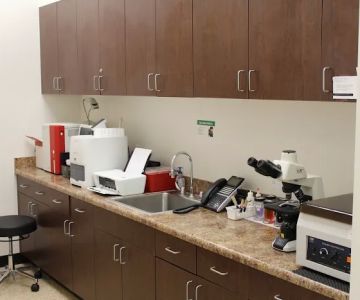Did Gerald Durrell Become a Veterinarian? Exploring His Passion for Animals
Gerald Durrell, the renowned British naturalist, writer, and television personality, is perhaps best known for his passion for wildlife and his significant contributions to animal conservation. However, many people wonder, did Gerald Durrell ever become a veterinarian? While his life and work closely intersected with veterinary practices and animal care, Durrell did not officially pursue a career as a veterinarian in the traditional sense. Instead, his role as a wildlife conservationist and zoo founder allowed him to focus on the well-being of animals in a way that was just as impactful as any veterinarian’s work. Let’s take a deeper dive into how Durrell’s love for animals shaped his career and his influence in the world of wildlife conservation.
1. Gerald Durrell's Early Life and Love for Animals
Gerald Durrell’s fascination with animals began at a very young age. Born in 1925, Durrell grew up surrounded by nature and a variety of animals, which sparked his lifelong interest in studying and protecting wildlife. In fact, Durrell’s first real introduction to animals was not through formal education or veterinary training, but through his personal experiences with animals in his family’s home. His early interest in wildlife was fostered by his parents, particularly his mother, who encouraged his curiosity.
During his childhood, Durrell’s home was filled with an array of animals, ranging from the common pets to more exotic species. His experiences with these creatures laid the foundation for his future work, even though he didn’t initially pursue veterinary school. This unique exposure helped him understand the behavior and needs of animals, preparing him for his later conservation efforts.
2. Gerald Durrell’s Role at the Jersey Zoo
While Durrell did not become a veterinarian, his legacy in animal care and conservation is perhaps most evident in his founding of the Jersey Zoo, later known as the Durrell Wildlife Conservation Trust. The zoo, established in 1959 on the island of Jersey in the English Channel, became a pioneering institution in wildlife conservation. Durrell’s philosophy was simple but powerful: preserve endangered species through active breeding and restoration programs. He believed that by focusing on the well-being of animals in captivity, many species could be saved from extinction.
At the Jersey Zoo, Durrell worked alongside veterinarians, zoologists, and other animal care professionals, ensuring that animals received the proper care they needed. Although he wasn’t a veterinarian himself, Durrell’s deep understanding of animal health and behavior allowed him to play a central role in the zoo’s operations. His work with the zoo cemented his place as one of the most important figures in modern wildlife conservation.
3. Gerald Durrell’s Focus on Conservation Rather than Veterinary Medicine
One of the most fascinating aspects of Gerald Durrell’s career was his focus on animal conservation rather than veterinary practice. Unlike many other conservationists, Durrell didn’t take the traditional route of veterinary school. Instead, he honed his knowledge through hands-on experience and extensive travel to study animals in their natural habitats. Durrell’s career was driven by the idea that protecting animals from extinction was just as important as caring for them in a clinical setting.
Durrell was not concerned with the medical side of animal care as much as he was with preserving species through breeding programs and educating the public about the importance of conservation. His work brought attention to rare and endangered species, including many that had never before been studied in detail. He dedicated his life to creating environments where these species could thrive, laying the groundwork for future conservationists and researchers.
4. The Influence of Gerald Durrell’s Books and Documentaries
While Durrell may not have been a veterinarian in the strict sense, his contributions to animal care and conservation were just as impactful. Much of his influence came through his books and television programs, which brought awareness to the plight of endangered species. His books, such as "My Family and Other Animals" and "The Bafut Beagles," captured the essence of his love for animals and his adventures around the world studying them.
Durrell’s television documentaries, such as the famous "Durrell in Africa" series, showcased his passion for conservation and the fascinating creatures he encountered. These documentaries allowed viewers to witness the importance of protecting wildlife in their natural habitats and showcased the vital work of zoos and sanctuaries around the globe. While he didn’t take on the traditional role of a veterinarian, Durrell’s educational and inspirational efforts were just as significant in the world of animal care.
5. The Legacy of Gerald Durrell in Modern Wildlife Conservation
Today, Gerald Durrell’s legacy lives on through the Durrell Wildlife Conservation Trust and the many conservation projects that bear his name. The trust continues his mission of protecting endangered species and promoting the idea that conservation is the key to saving wildlife. Durrell’s influence has also extended into the academic world, with many conservationists and veterinarians citing his work as an inspiration for their careers.
Moreover, the work he started at the Jersey Zoo has had a profound impact on the way modern zoos approach breeding programs, animal welfare, and environmental conservation. Today’s wildlife conservation programs often use the methods that Durrell pioneered, focusing on maintaining genetic diversity and ensuring that animals in captivity are given the best possible living conditions.
6. Did Gerald Durrell Become a Veterinarian? The Answer
So, did Gerald Durrell become a veterinarian? While he never formally pursued veterinary school, Durrell’s career undoubtedly intersected with veterinary care, particularly in his role as a wildlife conservationist and zoo founder. His contributions to the well-being of animals and his passion for conservation were far-reaching and continue to inspire individuals today. While he did not hold the title of a veterinarian, his work was just as important in preserving animal species and promoting environmental awareness.
Durrell’s life was a testament to the power of hands-on experience and dedication to a cause, showing that sometimes the most meaningful contributions to the world of animal care come from unconventional paths. His legacy has paved the way for future generations to follow in his footsteps, whether as veterinarians, conservationists, or animal advocates. Even without a veterinary degree, Gerald Durrell’s impact on the animal world remains unparalleled.











